Importance of Maintaining Home Plumbing Systems
Home plumbing systems are an essential part of our daily lives, responsible for delivering clean water to our taps and carrying waste away from our homes. Despite their importance, plumbing systems are often overlooked until something goes wrong. A small leak, a clogged drain, or a malfunctioning water heater can quickly disrupt your daily routine and lead to costly repairs. Proper maintenance of your home’s plumbing can prevent these issues and ensure that your system functions smoothly for years to come.
Why Regular Maintenance Matters
Regular maintenance helps identify and fix small issues before they become major problems. For example, a tiny leak may seem insignificant, but over time it can cause significant water damage, mold growth, and even structural problems in your home. Similarly, neglecting to clean drains regularly can lead to stubborn clogs that require professional intervention. By taking care of your plumbing system with routine checks and simple maintenance tasks, you can avoid these common issues and extend the lifespan of your plumbing fixtures and appliances.
Purpose of This Post
The purpose of this post is to share essential plumbing tips that every homeowner should know. These tips come from the wisdom and experience of a seasoned plumber, offering practical advice that can help you maintain your plumbing system, prevent common problems, and save money on repairs. Whether you’re a new homeowner or have been maintaining your home for years, these tips will provide valuable insights into keeping your plumbing system in top condition. By following these guidelines, you can ensure that your home’s plumbing remains reliable, efficient, and safe for your family.
Preventive Maintenance
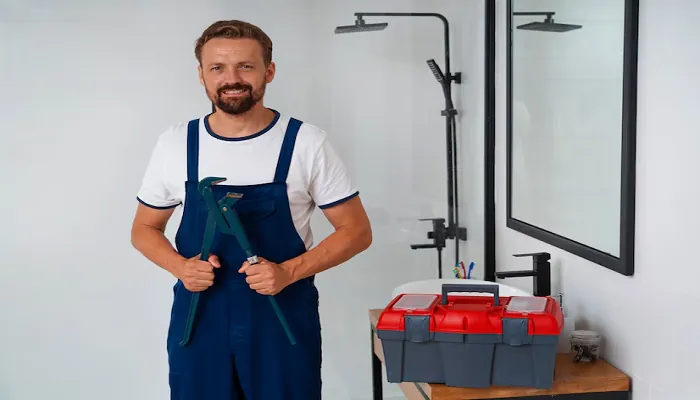
Importance of Regular Plumbing Inspections
Regular plumbing inspections are crucial for keeping your home’s plumbing system in good working order. These inspections help you spot potential problems before they turn into costly repairs. For instance, a small leak in a pipe might not seem like a big deal, but if left unchecked, it could cause water damage or lead to a burst pipe. By inspecting your plumbing regularly, you can catch these issues early and fix them before they escalate.
Tips for Preventing Common Issues
One of the most common plumbing issues homeowners face is leaks. To prevent leaks, make sure to regularly check all visible pipes, faucets, and hoses for any signs of dripping or moisture. If you notice any leaks, fix them right away, or call a plumber to handle more serious issues. Another common problem is clogs, especially in sinks and toilets. To prevent clogs, avoid flushing items like wipes, paper towels, or grease down the drain. Instead, dispose of these items in the trash. Also, consider using drain covers to catch hair and debris before they go down the drain and cause a blockage.
Checking Water Pressure and Maintaining Drains
Water pressure that is too high can put a strain on your pipes and fixtures, leading to leaks and even burst pipes. To check your water pressure, you can use a pressure gauge, which is easy to find at hardware stores. Ideal water pressure for most homes is between 40 and 60 psi (pounds per square inch). If your water pressure is too high, you may need to install a pressure regulator to keep it in check.
Maintaining your drains is also essential for preventing clogs and backups. Pouring a mixture of baking soda and vinegar down the drain every few months can help keep it clear. Additionally, running hot water through your drains after each use can help wash away any buildup before it becomes a problem.
By following these preventive maintenance tips, you can keep your plumbing system running smoothly and avoid unexpected repairs.
Dealing with Leaks
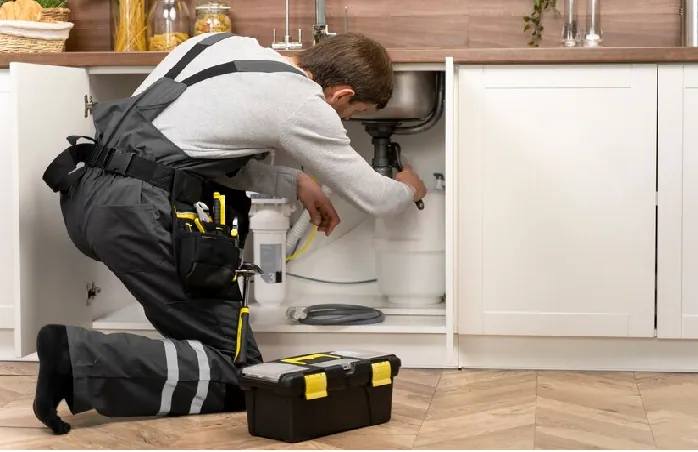
Identifying and Fixing Minor Leaks
Leaks are one of the most common plumbing issues in any home. Identifying a leak early can save you from significant water damage and costly repairs. Start by regularly checking under sinks, around toilets, and near appliances like washing machines and dishwashers. Look for water stains, damp spots, or pooling water, which are clear signs of a leak. If you find a minor leak, such as a dripping faucet or a small leak in a pipe joint, you can often fix it yourself. Tighten any loose connections with a wrench or replace worn-out washers to stop the leak.
Temporary Fixes Until Professional Help Arrives
Sometimes, a leak might be more than you can handle on your own, but you still need to stop it from causing damage until a plumber can get there. For a small leak in a pipe, you can use plumber’s tape or a rubber patch to temporarily seal the leak. Another option is to use a pipe clamp or a piece of rubber secured with a hose clamp to stop the water. For a leaking faucet, turning off the water supply to that fixture can prevent further dripping until you can make a proper repair or get professional help. These temporary fixes won’t last forever, but they can buy you some time and prevent damage.
Addressing Leaks Quickly to Prevent Water Damage
It’s crucial to address leaks as soon as you notice them. Even a small leak can lead to serious water damage if left unchecked. Water damage can cause wood to rot, lead to mold growth, and even weaken the structure of your home. Additionally, leaks can waste a lot of water, leading to higher utility bills. By fixing leaks promptly, you not only protect your home but also save money in the long run. If you’re unsure about how to fix a leak or if it seems serious, don’t hesitate to call a professional plumber to ensure the job is done correctly.
Unclogging Drains
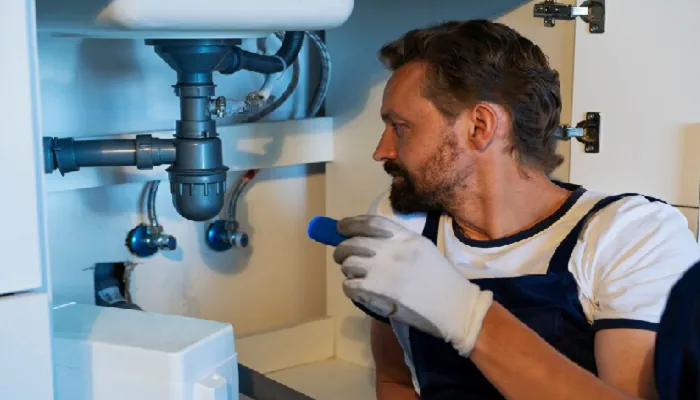
Common Causes of Clogged Drains and How to Avoid Them
Clogged drains are a common issue in many homes, often caused by a buildup of hair, soap scum, grease, food particles, or other debris. In the kitchen, grease and food scraps are the usual culprits, while in bathrooms, hair and soap residue often cause blockages. To avoid clogged drains, be mindful of what goes down your drains. Use drain screens or strainers to catch hair and food particles, and avoid pouring grease or oil down the kitchen sink. Regularly cleaning your drains with hot water and baking soda can also help prevent buildup.
Effective Methods for Unclogging Drains Using Simple Tools
When a drain becomes clogged, there are several effective methods you can use to clear it. One of the simplest tools is a plunger, which can create enough suction to dislodge minor clogs. For tougher clogs, a drain snake or auger can be useful. Insert the snake into the drain and twist it to break up the blockage, then pull it out to remove the debris. Another option is a bent wire hanger, which can be used to fish out hair clogs from bathroom drains. For kitchen sinks, boiling water can sometimes dissolve grease clogs, especially when combined with baking soda and vinegar.
Tips on When to Use Chemical Drain Cleaners and When to Avoid Them
Chemical drain cleaners can be effective for clearing clogs, but they should be used with caution. These cleaners contain harsh chemicals that can break down clogs, but they can also damage your pipes, especially if used frequently. They can also be harmful to the environment and dangerous if not handled properly. It’s best to use chemical drain cleaners only as a last resort when other methods have failed. If you find that your drains are frequently clogging, it might be a sign of a more serious issue, and it’s better to call a plumber to assess the situation rather than relying on chemicals that could potentially cause more harm than good.
Maintaining Water Heaters
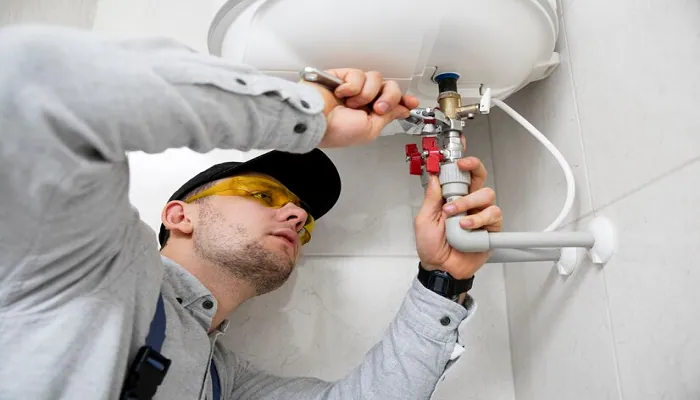
Importance of Regular Water Heater Maintenance for Efficiency
Regular maintenance of your water heater is essential for keeping it running efficiently and extending its lifespan. Over time, sediment and minerals can build up in the tank, reducing its efficiency and potentially causing damage. By maintaining your water heater, you can ensure it operates at peak performance, which can save energy and reduce your utility bills. Additionally, regular maintenance can help you avoid unexpected breakdowns and costly repairs.
Tips for Flushing the Tank and Checking the Pressure Relief Valve
One of the most important maintenance tasks for a water heater is flushing the tank. Flushing helps remove sediment and mineral buildup, which can cause the heater to work harder than necessary. To flush the tank, first, turn off the power or gas supply to the heater and allow it to cool. Then, connect a hose to the drain valve at the bottom of the tank, and run the hose to a drain or outside. Open the drain valve and allow the water to flow out until it runs clear, then close the valve and refill the tank.
Another crucial maintenance task is checking the pressure relief valve, which helps prevent excessive pressure from building up in the tank. To test the valve, place a bucket under the discharge pipe, lift the valve lever, and allow some water to flow out. If the valve doesn’t release water or it leaks afterward, it may need to be replaced.
Signs That Your Water Heater Needs Repair or Replacement
Even with regular maintenance, water heaters can develop issues over time. Common signs that your water heater may need repair or replacement include inconsistent water temperatures, strange noises coming from the tank, rusty or discolored water, and leaks around the base of the heater. If your water heater is over 10-15 years old and experiencing these issues, it may be more cost-effective to replace it rather than repair it. Regular maintenance can help catch these problems early, but when in doubt, consult a professional plumber to assess the situation.
Winter Plumbing Tips
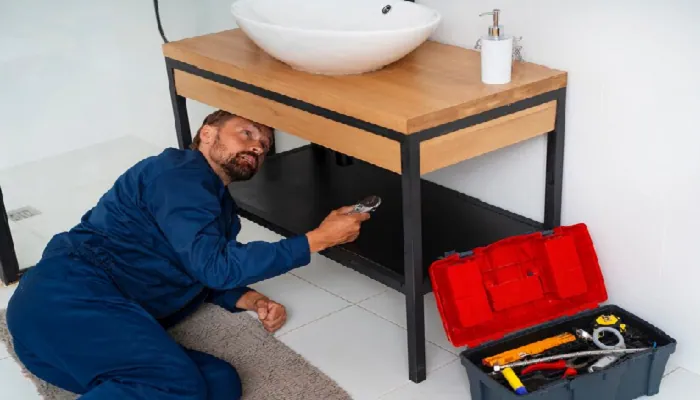
How to Protect Pipes from Freezing During Cold Weather
During winter, one of the biggest concerns for homeowners is preventing pipes from freezing. When water inside pipes freezes, it expands, which can cause pipes to burst and lead to significant water damage. To protect your pipes, start by keeping your home warm. Ensure that your heating system is working properly and that areas where pipes are located, such as basements, attics, and garages, are adequately heated. Even if these spaces are not in use, keep the thermostat at a consistent temperature throughout the day and night.
Tips for Insulating Pipes and Preventing Bursts
Insulating your pipes is one of the most effective ways to prevent them from freezing. Pipe insulation is available in foam, fiberglass, and other materials that are easy to install. Focus on pipes that are most exposed to cold air, such as those in unheated areas or along exterior walls. You can also use heat tape or heat cables for added protection, especially in extremely cold climates. These tools can be wrapped around pipes to provide extra warmth and prevent freezing.
Another helpful tip is to let faucets drip slightly during freezing weather. A small trickle of water can relieve pressure in the pipes, reducing the chance of a burst if they do freeze.
Advice on What to Do If Your Pipes Freeze
If you suspect that your pipes have frozen, act quickly to prevent them from bursting. First, locate the frozen pipe, which may be identifiable by frost on the outside or by a lack of water flow. If possible, use a hairdryer, heat lamp, or portable space heater to gently warm the pipe, starting near the faucet and working your way back. Avoid using an open flame or high heat, as this can damage the pipe.
If you cannot locate the frozen pipe or if it has already burst, turn off the water supply to your home and contact a plumber immediately. Taking swift action can minimize damage and prevent costly repairs.
Upgrading Plumbing Fixtures
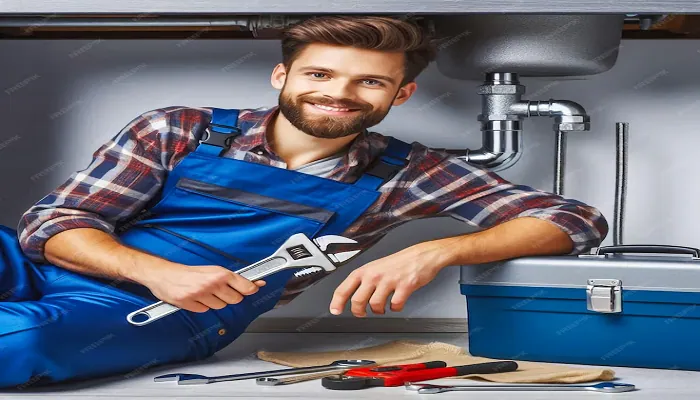
Benefits of Upgrading to Modern, Water-Saving Fixtures
Upgrading your plumbing fixtures can bring numerous benefits to your home, particularly in terms of water conservation and energy efficiency. Modern fixtures, such as low-flow toilets, faucets, and showerheads, are designed to use significantly less water without sacrificing performance. This not only helps reduce your water bills but also contributes to environmental conservation by reducing the amount of water your household consumes. Additionally, energy-efficient fixtures, like tankless water heaters, can lower your energy consumption, leading to further savings on utility bills.
Tips on Choosing Durable and Efficient Plumbing Fixtures
When selecting new plumbing fixtures, it's essential to consider both durability and efficiency. Look for fixtures made from high-quality materials that resist wear and tear, such as brass, stainless steel, or chrome. These materials are not only long-lasting but also resistant to corrosion, which is crucial for maintaining the longevity of your plumbing system.
Efficiency is another key factor to consider. Choose fixtures with the WaterSense label, which indicates that they meet the Environmental Protection Agency's (EPA) standards for water efficiency. Additionally, consider features like adjustable flow rates or touchless operation, which can enhance convenience and further reduce water usage.
Importance of Professional Installation for Complex Upgrades
While some plumbing fixture upgrades may seem straightforward, many require professional installation to ensure they function correctly and safely. For instance, installing a tankless water heater or a new shower system may involve complex plumbing work, electrical connections, or even modifications to your existing plumbing layout. Hiring a professional plumber ensures that the installation is done correctly, reducing the risk of leaks, malfunctions, or potential water damage.
In summary, upgrading your plumbing fixtures can provide significant benefits in terms of water and energy savings. However, it's important to choose durable and efficient products and to rely on professional installation for more complex upgrades to ensure optimal performance and long-term reliability.
When to Call a Professional
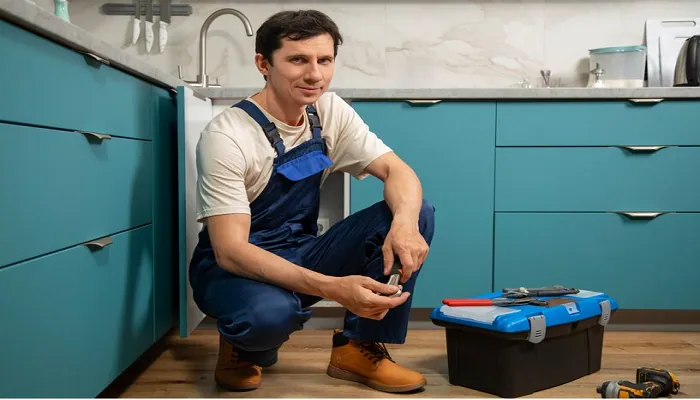
Signs That a Plumbing Issue Requires Professional Attention
Knowing when to call a professional plumber is crucial to avoid worsening a plumbing problem. Certain signs indicate that a plumbing issue is beyond DIY fixes and requires expert intervention. For example, persistent leaks that continue despite temporary repairs, low water pressure across multiple fixtures, or significant water damage in your home are strong indicators that professional help is needed. Additionally, if you encounter frequent clogs or slow drainage that doesn’t improve with over-the-counter solutions, it might be time to call in a plumber. Complex problems like issues with your main sewer line or water heater also necessitate professional expertise.
Tips on Finding a Reliable and Skilled Plumber
Finding a reliable and skilled plumber is essential for effective repairs. Start by asking friends, family, or neighbors for recommendations. Personal referrals often lead to trustworthy professionals. You can also check online reviews and ratings on platforms like Yelp or Google to see what other customers have experienced. Make sure the plumber you choose is licensed and insured, which ensures they meet industry standards and are covered in case of accidents. Additionally, get multiple quotes before deciding on a plumber to ensure you’re getting a fair price for the work.
Importance of Not Delaying Serious Plumbing Problems
When faced with serious plumbing issues, prompt action is crucial. Delaying repairs can lead to more extensive damage and higher repair costs. For instance, a small leak that is left unchecked can cause significant water damage to walls and floors, potentially leading to mold growth and structural issues. Addressing problems quickly not only prevents further damage but also helps to maintain the overall health of your plumbing system. If you notice any signs of a serious issue, don’t hesitate to contact a professional to handle the situation efficiently and effectively.
In summary, recognizing when a plumbing problem requires professional attention, finding a reliable plumber, and acting quickly can save you from more severe damage and costly repairs.
In this guide, we’ve covered essential plumbing tips, including preventive maintenance, dealing with leaks, unclogging drains, and more. Regular upkeep, like checking for leaks and maintaining your water heater, can prevent many common problems. It’s crucial to seek professional help for complex issues to avoid further damage and higher costs. By staying proactive with your plumbing care, you ensure your home remains in good condition and avoid major emergencies. Remember, timely maintenance and professional advice are key to keeping your plumbing system running smoothly and effectively.
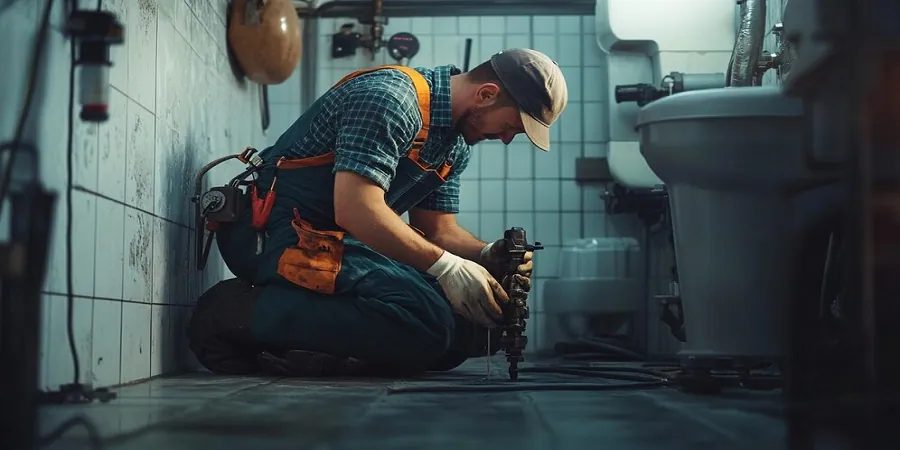
Comments